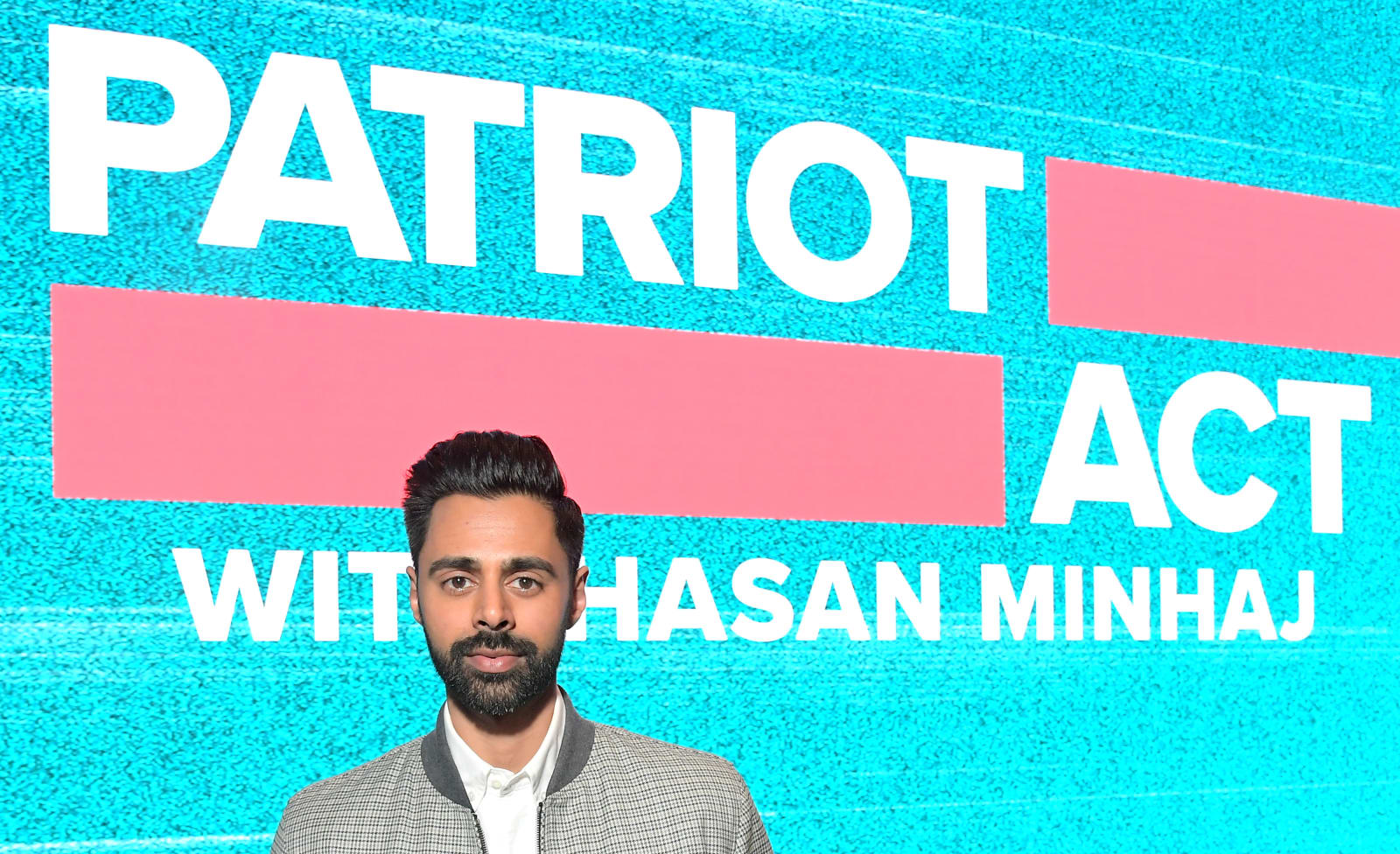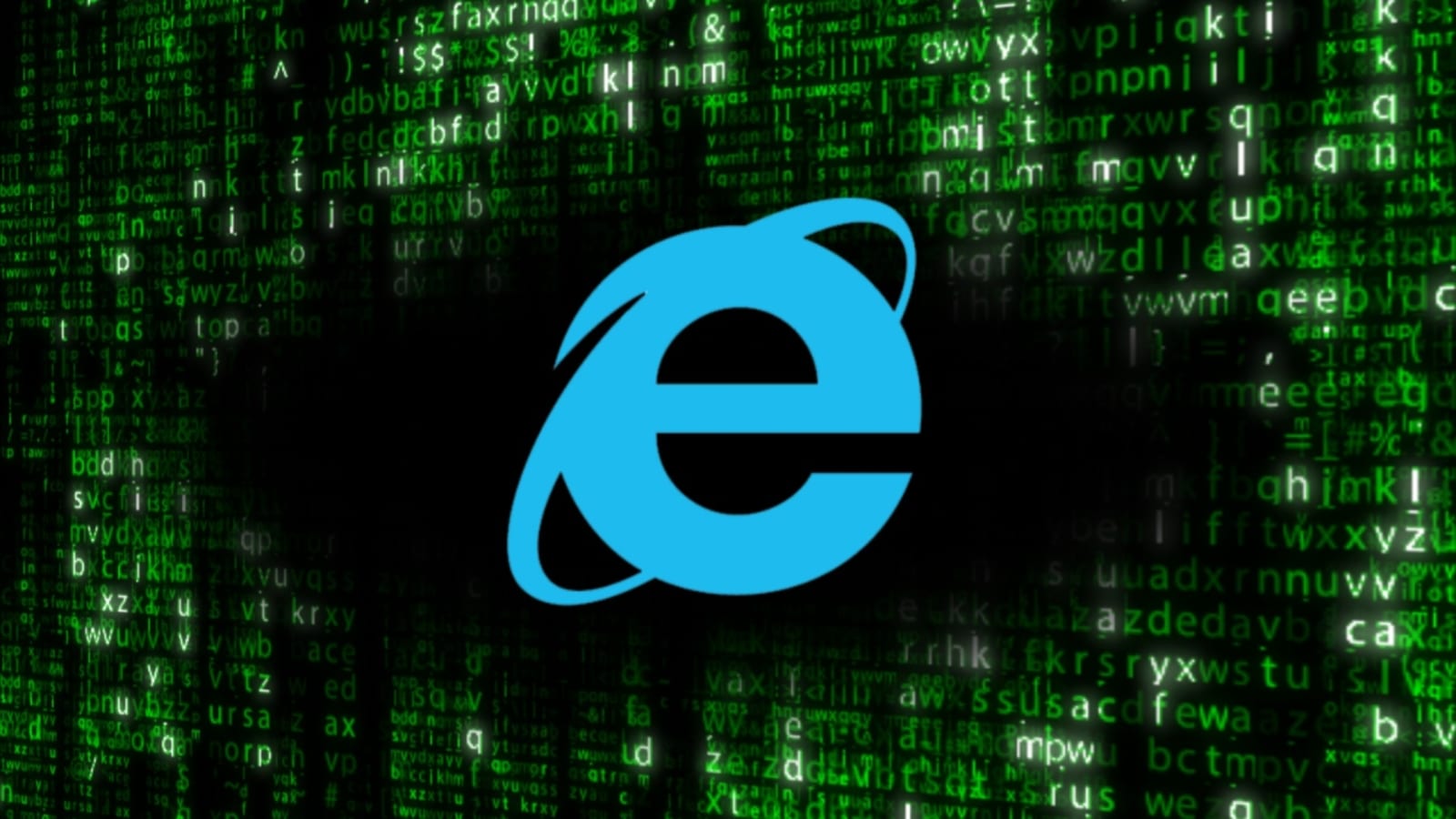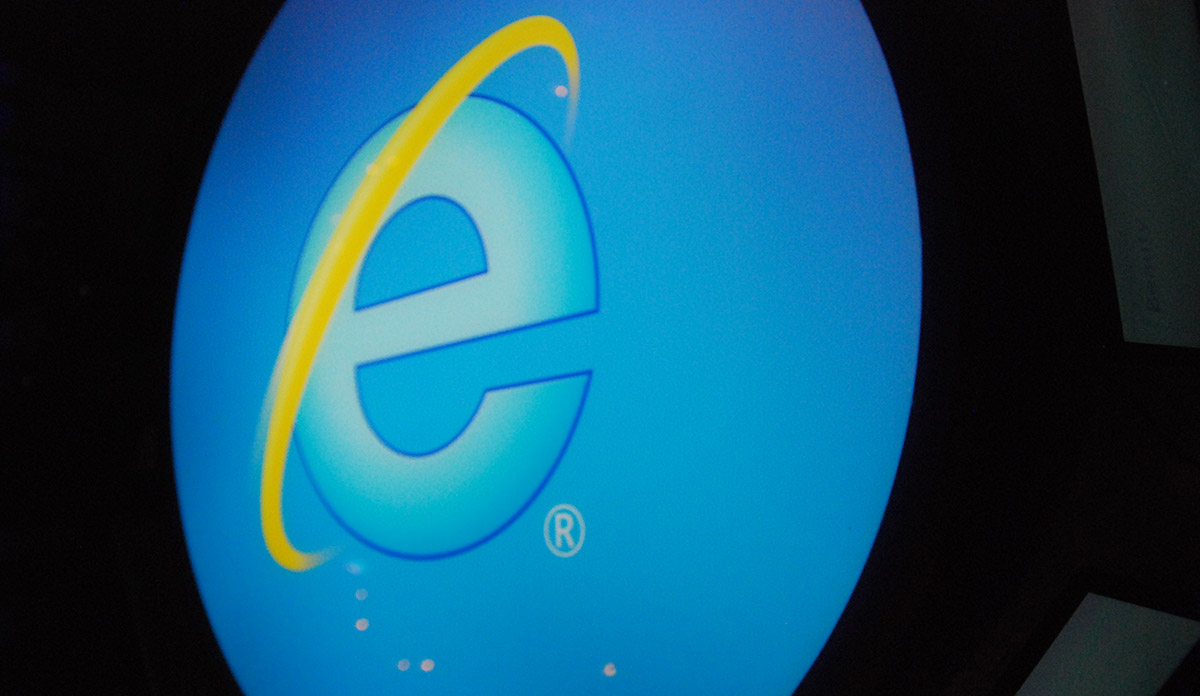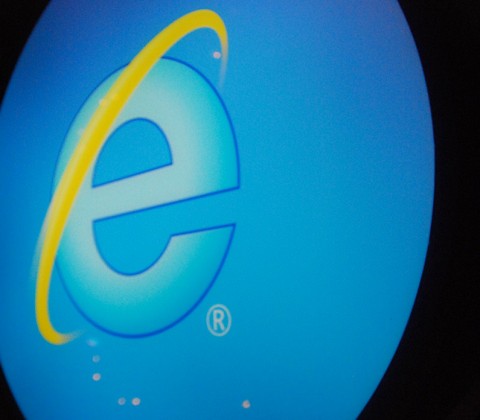Posts Tagged: Internet
Comcast Launches NOW: A Cheap Internet, TV, and Mobile Brand
Comcast’s new sub-brand, NOW, will provide cheaper option if you’re looking for an internet, mobile, or TV service provider.
TalkAndroid
5G home internet: What is it, and should you get it?
One of the promises of 5G is to bring a world without wires to your doorstep with wireless broadband in your home. But are we there yet?
Digital Trends
Best Verizon Fios new customer deals: Get 1GB/s internet in your home
Looking to save by bundling your internet, landline, and TV plans? We’ve got the best Verizon Fios deals here.
Digital Trends
Sony and other music labels sue Internet Archive for digitizing old records
The Internet Archive is facing another lawsuit over one of its conservation projects. Sony Music Entertainment, Universal Music Group and a handful of other music labels have filed a lawsuit against the nonprofit organization, accusing it of copyright infringement for digitizing, "willfully upload[ing], distribut[ing] and digitally transmitt[ing]" pre-1972 sound recordings. In particular, the labels are suing Internet Archive for the Great 78 Project, which seeks to preserve music recorded on 78rpm discs.
The labels call Internet Archive's efforts "blatant infringement," involving music by artists that include Frank Sinatra, Ella Fitzgerald, Billie Holiday, Miles Davis and Louis Armstrong. They also listed a few examples of "iconic recordings" available through the Great 78 Project, such as White Christmas, Sing, Sing, Sing, and The Christmas Song.
The companies said the the songs preserved on the project website are already available through streaming and other music services, so they "face no danger of being lost, forgotten, or destroyed." But the organization explained on the project portal that there's "still research value in the artifacts and usage evidence in the often rare 78rpm discs and recordings."
The plaintiffs disagree, writing in their complaint that Internet Archive's activities "far exceed" the limited purposes of preservation and research. "Internet Archive unabashedly seeks to provide free and unlimited access to music for everyone, regardless of copyright," they added. The labels are asking statutory damages of up to $ 150,000 for each protected sound recording, and that could add up to $ 372 million for the listed recordings, according to Bloomberg.
Internet Archive is also embroiled in a legal battle with a group of US publishers led by Hachette Book Group over the National Emergency Library. The organization lent out digitally scanned copies of books through the program during the height of the pandemic, which the publishers described as "willful mass copyright infringement." A federal judge ruled against Internet Archive for that particular case, though the organization is planning to appeal that decision.
This article originally appeared on Engadget at https://www.engadget.com/sony-and-other-music-labels-sue-internet-archive-for-digitizing-old-records-110108988.html?src=rss
Engadget is a web magazine with obsessive daily coverage of everything new in gadgets and consumer electronics
The Internet Archive’s PalmPilot Emulation project lets you relive tech history
Fifteen years after the release of the iPhone, it’s easy to overlook the role early innovators like Palm played in popularizing the smartphone. By the time HP unceremoniously shut down the company in 2011, Palm had struggled for a few years to carve out a niche for itself among Apple and Google. But ask anyone who had a chance to use a Palm PDA in the late ‘90s or early 2000s and they’ll tell you how fondly they remember the hardware and software that made the company’s vision possible. Now, it’s easier than ever to see what made Palm OS so special back in its day.
This week, archivist Jason Scott uploaded a database of Palm OS apps to the Internet Archive. In all, there are about 560 programs to check out, including old favorites like DopeWars and SpaceTrader. Even if you don’t have any nostalgia for Palm, it’s well worth spending a few minutes with the collection to see how much – or, in some cases, little – things have changed since Palm OS was a dominant player in the market.
Hey, so, don’t tell anyone, but I’m announcing PalmPilot emulation at Internet Archive for the holidays, probably next week. All the currently-working items need descriptions, so it’s not quite ready. Don’t tell anybody, OK? https://t.co/ye9z4iTPsxpic.twitter.com/0SNRVJw0Kp
— Jason Scott (@textfiles) November 24, 2022
For instance, there’s an entire section devoted to shareware and it’s interesting to see just how much some developers thought it was appropriate to pay for their software. Want to use the full version of StockCalc? Just send $ 15 by post to DDT Investments in Plaistow, New Hampshire.
In an interview with The Verge, Scott said it took about six months to get the CloudpilotEmu emulator to work with the Internet Archive. There’s still some work to be done. Specifically, some of the more obscure apps are missing descriptions and metadata. Scott also hopes to write instructions for each program. Still, short of buying an old Palm device off of eBay, this is the best way to experience a bygone computing era. That’s because CloudpilotEmu allows you to navigate through Palm OS. You can even launch the database from your phone and there’s full support for Palm’s Graffiti handwriting recognition system. If you want to help Scott with the project, contact him on Twitter or Discord.
Comcast debuts 2Gbps internet service in four states
After nearly two years of testing, Comcast is one step closer to offering multi-gig symmetrical speeds over cable. This week, the company began a new deployment that will allow more than 50 million US households to access its new 2Gbps service by the end of 2025. In a press release spotted by The Verge, Comcast said it would offer multi-gig internet packages in 34 cities across the country before the end of the year, with initial rollouts already underway in Augusta, Colorado Springs, Panama City Beach and Philadelphia.
Even if you don’t sign up for the new Gigabit 2x service, you’ll see an improvement in upload speeds. For instance, in Colorado Springs, Comcast says some tiers offer upload speeds up to 10 times faster than previously possible. The Gigabit 2x plan will initially limit customers to uploading files at 200Mbps. However, starting in 2023, multi-gig symmetrical speeds will be possible, thanks to a technology called DOCSIS 4.0.
Comcast has been transitioning to the standard for the past few years. Once that work is complete, it will have the network in place to offer 10Gbps download speeds and 6Gbps upload speeds on the same connection. In turn, that would allow it to provide symmetrical speeds across many of its cable packages. That’s an area where cable has historically lagged compared to fiber optic internet.
This Android tablet uses the internet without Wi-Fi or a SIM card
The Tab 13 is a run-of-the-mill tablet, but what sets it apart is the fact that it doesn’t require Wi-Fi or a SIM card to connect to the internet.
Mobile | Digital Trends
Whist browser aims to deliver next-gen internet by rendering websites in the cloud
No one will argue that the internet of 2022 isn’t significantly more demanding than the internet even just ten years ago. Websites are built like apps, offering all kinds of experiences that weren’t possible years ago, but that’s come at a significant processing cost. That high-end phone you bought years ago, or your desktop that […]
Come comment on this article: Whist browser aims to deliver next-gen internet by rendering websites in the cloud
Verizon’s Fios Fiber, LTE, and 5G Home Internet plans are down to just $25*
There aren’t many savings to be made on your monthly bills in 2022 but Verizon has announced that it has reduced all of its Home Internet plans from $ 50 to $ 25 per month. The price cut applies to its Fios fiber, LTE Home, and 5G Home products, with the only real catch being that users […]
Come comment on this article: Verizon’s Fios Fiber, LTE, and 5G Home Internet plans are down to just $ 25*
Get free unlimited in-flight internet, 5GB of international data, and roadside assistance for a year on T-Mobile
As international travel continues to open up, T-Mobile is handing its customers a couple of handy freebies that will make accessing data when overseas so much easier. The carrier’s new Coverage Beyond product will give customers an allowance of high-speed data in more than 210 countries with the added bonus of free, unlimited in-flight internet […]
Come comment on this article: Get free unlimited in-flight internet, 5GB of international data, and roadside assistance for a year on T-Mobile
Internet backbone provider Cogent cuts off service to Russia
Cogent Communications, an internet backbone provider that carries approximately 25 percent of all global web traffic, has begun cutting ties with Russian businesses in response to the country’s invasion of Ukraine. The company told The Washington Post it was doing so to prevent the Kremlin from using its network to carry out cyberattacks and spread misinformation about the ongoing conflict.
“Our goal is not to hurt anyone. It’s just to not empower the Russian government to have another tool in their war chest,” Cogent CEO Dave Schaeffer told the outlet, adding “it was a tough decision.” In a statement to ZDNet, the company said it was also complying with European Union sanctions against Russia Today and Sputnik. “Cogent is not otherwise restricting or blocking traffic originating from or destined for Russia. Cogent continues to provide services to Ukraine,” the company added.
The move is expected to disrupt and slow down internet connectivity. Some of Cogent’s Russian clients include state-owned telecom operator Rostelecom, one of the country’s largest internet providers, and wireless carriers Megafon and Veon. Cogent said it was working with some of those companies to provide them extensions.
WTF Cogent? Cutting Russians off from internet access cuts them from off from sources of independent news and the ability to organize anti-war protests. Don't do Putin's dirty work for him. https://t.co/uqbgOFYWX9
— Eva (@evacide) March 4, 2022
Some experts worry the move will also prevent Russians from accessing information that doesn’t come from the Kremlin. “I would like to convey to people all over the world that if you turn off the Internet in Russia, then this means cutting off 140 million people from at least some truthful information,” Mikhail Klimarev, the executive director of Russia’s Internet Protection Society, told The Washington Post. “As long as the Internet exists, people can find out the truth. There will be no Internet — all people in Russia will only listen to propaganda.”
To that point, Russians already can’t access Facebook and Twitter after the country’s government moved to restrict those platforms. They may soon lose access to Wikipedia as well.
How to increase your internet speed
Quickly finding out that your internet speed is not what it used to be? Here are the best options for improving your internet speeds without giving anything up.
Mobile | Digital Trends
Amazon explains outage that took out a large chunk of the internet
Amazon has explained the Web Services outage that knocked parts of the internet offline for several hours on December 7th — and promised more clarity if this happens in the future. As CNBCreports, Amazon revealed an automated capacity scaling feature led to "unexpected behavior" from internal network clients. Devices connecting that internal network to AWS were swamped, stalling communications.
The nature of the failure prevented teams from pinpointing and fixing the problem, Amazon added. They had to use logs to find out what happened, and internal tools were also affected. The rescuers were "extremely deliberate" in restoring service to avoid breaking still-functional workloads, and had to contend with a "latent issue" that prevented networking clients from backing off and giving systems a chance to recover.
The AWS division has temporarily disabled the scaling that led to the problem, and won't switch it back on until there are solutions in place. A fix for the latent glitch is coming within two weeks, Amazon said. There's also an extra network configuration to shield devices in the event of a repeat failure.
You might have an easier time understanding crises the next time around. A new version of AWS' service status dashboard is due in early 2022 to provide a clearer view of any outages, and a multi-region support system will help Amazon get in touch with customers that much sooner. These won't bring AWS back any faster during an incident, but they may eliminate some of the mystery when services go dark — important when victims include everything from Disney+ to Roomba vacuums.
How far away are we from 5G home internet becoming mainstream?
The promise of 5G home internet still hasn’t been realized for most Americans. We looked into how long it’ll take for it to become a mainstream option.
Emerging Tech | Digital Trends
Scientists think the next big solar storm could create an ‘internet apocalypse’
Scientists say that our existing internet infrastructure — namely undersea cables — isn’t equipped to weather the next big solar storm. Here’s why.
Emerging Tech | Digital Trends
Google’s wireless gigabit internet is now called Fiber Webpass

Engadget RSS Feed
Safer Internet Day: 5 ways we’re building a safer YouTube
Keeping you and your family safe online is a top priority at YouTube. Today on Safer Internet Day, we’re sharing some of the ways we work to keep YouTube safe, and how you can be more in control of your YouTube experience. From built-in protections to easy-to-use tools, we hope you’ll take advantage of these tips:
1. Learn more about the content available on YouTube
We work hard to maintain a safe community and have guidelines that explain what we allow and don’t allow on YouTube. Most of what we remove is first-detected by machines, which means we actually review and remove prohibited content before you ever see it. But no system is perfect, so we make sure if you see something that doesn’t belong on YouTube, you can flag it for us and we’ll quickly review it. If you want to know what happened to a video you flagged, just visit your reporting history to find out.
2. Learn more about what data we collect and how to update your privacy settings
Check out Your Data in YouTube to browse or delete your YouTube activity and learn more about how we use data. Your YouTube privacy settings include managing your search and watch history. If you prefer more private viewing, you can use Incognito mode on the YouTube mobile app or Chrome browser on your computer. Learn more.
You can also take the Privacy Checkup and we’ll walk you through key privacy settings step-by-step. For YouTube, you’ll be able to do things like easily pause your YouTube History, or automatically delete data that may be used for your recommendations.
3. Check in on your security settings and keep your passwords safe
Head over to Security Checkup for personalized recommendations to help protect your data and devices across Google, including YouTube. Here, you can manage which third-party apps have access to your account data and also take the Password Checkup, which tells you if any of your passwords are weak and how to change them. In addition, you can access Password Manager in your Google Account to help you remember and securely store strong passwords for all your online accounts.
4. Learn more about how ads work and control what ads you see on YouTube
We do not sell your personal information to anyone, and give you transparency, choice and control over how your information is used as a part of Google. If you’re curious about why you’re seeing an ad, you can click on Why this ad for more information. If you no longer find a specific ad relevant, you can choose to block that ad by using the Mute this ad control. And you can always control the kinds of ads you see, or turn off ads personalization any time in your Ad Settings.
5. Try the YouTube Kids app, built with parental controls
We recommend parents use YouTube Kids if they plan to allow kids under 13 to watch independently. YouTube Kids is a separate app with family-friendly videos and parental controls. We work hard to keep the videos on YouTube Kids suitable for kids and have recently reduced the number of channels on the app. The app also empowers parents to choose what’s the right experience for their kids and family, such as which content is available for their kids, how long they can use the app for and much more.
In addition to YouTube Kids, we also recently made changes to Made for Kids content on YouTube to better protect children’s privacy.
Finally if you have any questions or feedback, let us know! We are available 24/7 on @TeamYouTube, or you can always check out our YouTube Help Community to learn about the latest announcements. Responsibility is our number one priority, and together with you, we will continue our ongoing efforts to build a safer YouTube.
— The YouTube Team
Comcast revives ‘E.T.’ to hawk cable and internet service

Engadget RSS Feed
Global Internet Forum to Counter Terrorism: An update on our progress
In summer 2017, Facebook, YouTube, Microsoft and Twitter came together to form the Global Internet Forum to Counter Terrorism (GIFCT).
The objective of the GIFCT has always been to substantially disrupt terrorists’ ability to promote terrorism, disseminate violent extremist propaganda, and exploit or glorify real-world acts of violence on our services. We do this by joining forces with counterterrorism experts in government, civil society and the wider industry around the world. Our work centers around three, interrelated strategies:
- Joint tech innovation
- Knowledge sharing
- Conducting and funding research
Today, building on the commitments we made as part of the Christchurch Call to Action, we are adding a fourth pillar to our work that will focus on crisis response. Specifically, we are introducing joint content incident protocols for responding to emerging or active events, such as the horrific terrorist attack in Christchurch, so that relevant information can be quickly and efficiently shared, processed and acted upon by all member companies. We are also releasing our first GIFCT Transparency Report and a new counterspeech campaign toolkit that will help activists and civil society organizations challenge the voices of extremism online.
And as we head into our third year as GIFCT, we are pleased to welcome Pinterest and Dropbox as members. We will continue to add new members, particularly smaller companies, that could benefit from the collective experience of GIFCT members.
More than 200,000 unique hashes now in our joint database
When terrorists misuse the internet, they often upload the same piece of content to multiple platforms to maximize their reach. To disrupt this behavior, we jointly developed a shared industry database of “hashes” — or digital fingerprints — that allows us to safely share known terrorist images and video propaganda with partner companies. This enables us to more quickly identify and take action against potential terrorist content on our respective platforms.
The shared database predates the creation of GIFCT, but over the last couple years, we have significantly increased the volume of hashes within the database. In 2018, for example, we set and achieved our goal of reaching 100,000 unique hashes. And in the first six months of this year, we’ve already doubled that number, and we now have more than 200,000 unique hashes in the database.
As we take steps to deliver on the four collaborative actions set forth in the Christchurch Call to Action, we’re expanding the shared industry database so that it extends beyond photos and videos to include URLs that lead to known terrorist and violent extremist content online.
First GIFCT Transparency Report
We have heard, loud and clear, from government and civil society that we need to be more transparent about what we are working on as an industry. As a result, today we are releasing our first-ever GIFCT Transparency Report. The report goes into detail about the GIFCT’s primary work streams, providing greater insight into how the Hash Sharing Consortium has defined terrorist content, and the volume and types of content included in the database. The full transparency report, which is available here, will complement the transparency reports put out by individual GIFCT member companies.
A toolkit to counter violent extremism
When we committed to the Christchurch Call to Action and issued a nine-point plan outlining concrete steps we plan to take as an industry, we said, “We come together, resolute in our commitment to ensure we are doing all we can to fight the hatred and extremism that lead to terrorist violence.” Never has that commitment been more important. As industry partners, we continue to prioritize and deepen engagement with governments, civil society and smaller tech companies around the world.
In partnership with Tech Against Terrorism, we’ve held 11 workshops in nine countries on four continents. We’ve met with 120 different tech and innovation platforms, and we have provided funding to secure Jihadology.net to make sure that researchers studying terrorism can still access primary research material while ensuring that terrorists and people vulnerable to recruitment cannot.
Today, we are also rolling out a cross-platform counter-violent extremist toolkit that we jointly developed with the Institute for Strategic Dialogue. The toolkit will assist civil society organizations in developing online campaigns to challenge extremist ideologies, while prioritizing their safety. We know that the technology industry isn’t the best or most appropriate messenger when it comes to pushing back on violent extremists, which is why it’s so important to support civil society organizations that have the credibility and knowledge to combat, respond and counter the promotion of violent extremism online.
Enabling and empowering companies to respond to crises like Christchurch
Perhaps most importantly, today we are adding a fourth pillar to the GIFCT’s core mission: enabling and empowering companies to respond to crises like Christchurch. The horrific terrorist attack highlighted the importance of close communication between members, and between government and the wider industry, which is why we are introducing joint content incident protocols to enable and empower companies to more quickly and effectively respond to emerging and active events.
The protocol, which can be triggered by a real-world event involving murder or attempted murder of defenseless civilians or innocents, outlines steps that tech companies can take to respond quickly to an attack. Based on the joint protocols, we will work together to categorize the type of incident and the anticipated level and degree of online impact. We will also set up formal channels of communication so we can share intelligence and content with non-GIFCT companies and other stakeholders, as needed.
Terrorism and violent extremism are complex problems that require a joint response from industry, governments and wider society. We believe that by working together, sharing the best technological and operational elements of our individual efforts, we can have a significantly greater impact on the threat of terrorist content online than we can alone.
We are grateful for the support of and collaboration with governments, international organizations and NGOs around the world, including the EU Internet Forum and the UN Counter Terrorism Executive Directorate. We look forward to sharing more updates in the coming months.
— The Global Internet Forum to Counter Terrorism
Netflix puts a ‘Patriot Act’ episode about bad internet access on DVD

Engadget RSS Feed
[TA Deals] Save over 70% on multi-year subscriptions to Private Internet Access VPN!
It’s 2019, and if you don’t already have a reliable VPN, you’re doing something wrong. If you’ve put that off until now, we’ve got a deal to help you kick off the new year with a much more secure outlook on the internet and your digital security. Talk Android Deals is offering discounted subscriptions to […]
Come comment on this article: [TA Deals] Save over 70% on multi-year subscriptions to Private Internet Access VPN!
Internet Explorer security flaw allows hackers to steal files

Engadget RSS Feed
LiFiMax’s invisible light internet works with up to 16 users

Engadget RSS Feed


More states join lawsuit to keep 3D-printed gun plans off the internet
 On August 1st, Defense Distributed was set to upload designs of 3D-printed guns for the public to buy and download. But the day before, a Seattle judge temporarily blocked their release after seven states and Washington, DC sued the company and State…
On August 1st, Defense Distributed was set to upload designs of 3D-printed guns for the public to buy and download. But the day before, a Seattle judge temporarily blocked their release after seven states and Washington, DC sued the company and State…
Engadget RSS Feed
Facebook hopes to launch an internet satellite in early 2019

Engadget RSS Feed
After Math: Internet flame war
As the president sets the stage for a showdown with the video game industry over school safety (since it's the games that are the real problem, not the guns, nope nope nope), small scale skirmishes and outright battles have been springing up all over…
Engadget RSS Feed
Global Internet Forum to Counter Terrorism to hold first meeting in San Francisco
The Global Internet Forum to Counter Terrorism is holding its first workshop on August 1, 2017, in San Francisco, where representatives from the tech industry, government, and non-governmental organizations are coming together to share information and best practices about how to counter the threat of terrorist content online.
Formed last month by Facebook, Microsoft, Twitter, and YouTube, the Global Internet Forum to Counter Terrorism formalizes and structures how our companies work together to curtail the spread of terrorism and violent extremism on our hosted consumer services. Building on the work started within the EU Internet Forum and the shared industry hash database, the GIFCT is fostering collaboration with smaller tech companies, civil society groups and academics, and governments.
In addition to the founding companies of the GIFCT, more than two dozen other technology companies and NGOs will be participating in Tuesday’s meeting. We also welcome United Kingdom Home Secretary Rt Hon Amber Rudd MP and United States Acting Secretary of Homeland Security Elaine Duke — as well as representatives from Australia, Canada, the European Union, and the United Nations — to discuss mutual areas of cooperation.
At Tuesday’s meeting we will be formalizing our goals for collaboration and identifying with smaller companies specific areas of support needed as part of the the GIFCT’s workplan. Our mission is to substantially disrupt terrorists’ ability to use the Internet in furthering their causes, while also respecting human rights. This disruption includes addressing the promotion of terrorism, dissemination of propaganda, and the exploitation of real-world terrorist events through online platforms. To achieve this, we will join forces around three strategies:
- Employing and leveraging technology
- Sharing knowledge, information and best practices, and
- Conducting and funding research.
In the next several months, we also aim to achieve the following:
- Secure the participation of five additional companies to the industry hash-sharing database for violent terrorist imagery; two of which have already joined: Snap Inc. and Justpaste.it
- Reach 50 companies to share best practices on how to counter terrorism online through the Tech Against Terrorism project in partnership with ICT4Peace and the U.N. Counter Terrorism Executive Directorate
- Conduct four knowledge-sharing workshops — starting in San Francisco Tuesday, with plans for further meetings later this year in other locations around the world
We believe that the best approach to tackling online terrorism is to collaborate with each other and with others outside the private sector, including civil society and government. We look forward to further cooperation as we develop a joint strategic plan over time.
Facebook, Microsoft, Twitter and YouTube Announce Formation of the Global Internet Forum to Counter Terrorism
-
Technological solutions: Our companies will work together to refine and improve existing joint technical work, such as the Shared Industry Hash Database; exchange best practices as we develop and implement new content detection and classification techniques using machine learning; and define standard transparency reporting methods for terrorist content removals.
-
Research: We will commission research to inform our counter-speech efforts and guide future technical and policy decisions around the removal of terrorist content.
-
Knowledge-sharing: We will work with counter-terrorism experts including governments, civil society groups, academics and other companies to engage in shared learning about terrorism. And through a joint partnership with the U.N. Security Council Counter-Terrorism Executive Directorate (U.N. CTED) and the ICT4Peace Initiative, we are establishing a broad knowledge-sharing network to:
-
Engage with smaller companies: We will help them develop the technology and processes necessary to tackle terrorist and extremist content online.
-
Develop best practices: We already partner with organizations such as the Center for Strategic and International Studies, Anti-Defamation League and Global Network Initiative to identify how best to counter extremism and online hate, while respecting freedom of expression and privacy. We can socialize these best practices, and develop additional shared learnings on topics such as community guideline development, and policy enforcement.
-
Counterspeech: Each of us already has robust counterspeech initiatives in place (e.g., YouTube’s Creators for Change, Jigsaw’s Redirect Method, Facebook’s P2P and OCCI, Microsoft’s partnership with the Institute for Strategic Dialogue for counter-narratives on Bing, Twitter’s global NGO training program). The forum we have established allows us to learn from and contribute to one another’s counterspeech efforts, and discuss how to further empower and train civil society organizations and individuals who may be engaged in similar work and support ongoing efforts such as the Civil society empowerment project (CSEP).


ESA throws its weight behind satellite-based 5G internet
 The European Space Agency has joined forces with 16 European space companies to demonstrate and champion satellite-based 5G internet. They're calling their new initiative "Satellite for 5G," and they signed their agreement at the Paris Air and Space…
The European Space Agency has joined forces with 16 European space companies to demonstrate and champion satellite-based 5G internet. They're calling their new initiative "Satellite for 5G," and they signed their agreement at the Paris Air and Space…
Engadget RSS Feed
NASA is fed up with lousy ‘internet’ speeds in space, so it’s doing something about it
NASA, like a lot of people with lousy internet, is fed up with slow data-transfer speeds between spacecraft and Earth. Which is why it’s developing a laser-based system that could one day see speeds increase by up to 100 times.
The post NASA is fed up with lousy ‘internet’ speeds in space, so it’s doing something about it appeared first on Digital Trends.
U.S. travel ban causes disruption for internet nonprofit ICANN
The travel ban put in place by President Trump is already impacting internet nonprofit ICANN, as two prominent representatives of the organization are being prevented from attending upcoming events.
The post U.S. travel ban causes disruption for internet nonprofit ICANN appeared first on Digital Trends.
Google’s slimmed-down YouTube Go app tailor-made for India’s unstable internet
Google unveiled YouTube Go, a lightweight client for slow internet connections like those seen in India, at an event in Dehli, India, on Tuesday. It’s launching later this year as part of a limited beta.
The post Google’s slimmed-down YouTube Go app tailor-made for India’s unstable internet appeared first on Digital Trends.
If you’re not ready to ‘invent the internet,’ don’t look for a job at DARPA
To ensure a constant workforce of big thinking, impossible task seeking employees, DARPA gives every new hire a job expiration date, usually in four years. After the best-used-by-date, it’s time to seek other work.
The post If you’re not ready to ‘invent the internet,’ don’t look for a job at DARPA appeared first on Digital Trends.


Global internet speeds are on the rise again
 Yes, South Korea still has the fastest internet in the world. But, according to content delivery network Akamai, average global speeds are up overall from late last year, jumping to 6.3 Mbps. More than that, we're seeing increases in increases in IPv…
Yes, South Korea still has the fastest internet in the world. But, according to content delivery network Akamai, average global speeds are up overall from late last year, jumping to 6.3 Mbps. More than that, we're seeing increases in increases in IPv…
Engadget RSS Feed
Facebook thinks its new antennas could help bring Internet to the masses
Facebook is on a mission to connect the world to the Internet. Its next way of doing so? Huge antennas that could beam access for miles, bringing Internet even to those living in rural areas beyond city limits.
The post Facebook thinks its new antennas could help bring Internet to the masses appeared first on Digital Trends.
Comcast gigabit Internet users will have to sign a three-year contract to avoid data cap
Comcast has rolled out gigabit Internet in Atlanta, GA to compete with Google Fiber, but you’ll pay double the price if you don’t want to sign a three-year contract, and your speed will also be throttled at 300GB.
The post Comcast gigabit Internet users will have to sign a three-year contract to avoid data cap appeared first on Digital Trends.


Bosch is building its own Internet of Things cloud network
 Like it or not, it looks like the Internet of Things is going to be more than an annoying buzzword or passing fad. The latest proof is that Bosch is offering an end-to-end environment to get your house communicating with the various devices and appli…
Like it or not, it looks like the Internet of Things is going to be more than an annoying buzzword or passing fad. The latest proof is that Bosch is offering an end-to-end environment to get your house communicating with the various devices and appli…
Engadget RSS Feed


Microsoft no longer supports Internet Explorer 8, 9 and 10
 Although PC users love to hate Microsoft's Internet Explorer, the software is credited with helping millions of people enjoy their first taste of the web. The browser is not as popular as it once was, but Microsoft has continued to support older vers…
Although PC users love to hate Microsoft's Internet Explorer, the software is credited with helping millions of people enjoy their first taste of the web. The browser is not as popular as it once was, but Microsoft has continued to support older vers…
Engadget RSS Feed

 The UK govenment's demand for stricter regulation of internet companies is only growing louder. A report from a House of Lords committee has called for the creation of a central "Digital Authority" that would watch over all the efforts to regulate t…
The UK govenment's demand for stricter regulation of internet companies is only growing louder. A report from a House of Lords committee has called for the creation of a central "Digital Authority" that would watch over all the efforts to regulate t…
Killing comments won’t cure our toxic internet culture
Engadget RSS Feed